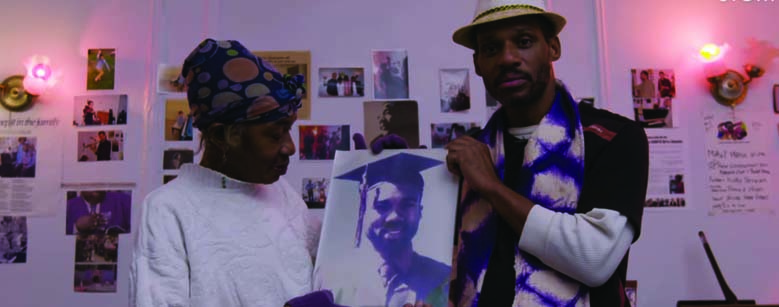555 Edgecombe Street is not an easy building to find. Hidden behind scaffolding, it has an easily passable entrance. But, on the streets above and below, the sounds of soft jazz can be heard drifting out windows and through buildings. Only after following the deep saxophone notes that echoed on the streets in Sugar Hill, Harlem, was I able to find the historic building and it’s even more historic tenant, Marjorie Eliot, located in Apartment 3-F.
Every Sunday, starting briskly at 3:30 p.m., Eliot hosts free jazz concerts in her high-ceiling apartment. For 25 years, she has hosted these concerts only on Sundays, the day with a meaning close to her heart.
The concert, originally performed on the lawn of Morris-Jumel Mansion in Washington Heights, was a memorial for her son, Philip, who died on a Sunday in 1992.
She continued the memorial each year, eventually becoming a weekly event and moving to her apartment the following year. The celebration of life and jazz continued on through the death of another son, Phillip, in 2006, and the disappearance of another son, Alfie, in 2011.
There is no entry fee, only a basket passed around for donations.
It is her other son, Rudel Dears, that accompanies her, the musicians and the dozens of people that line her walls, poised precariously on the pillow-clad fold-out chairs in the hallway, kitchen and living room. Another woman weaves through the aisles and those standing to pass around a cafeteria tray filled with free granola bars and juice.
When entering the hallway of the third floor, it became obvious that all seats were filled, as a crowd had begun forming outside the door.
That was when Eliot first appeared, looking down the hallway at those peering inside.
Dressed in a two-piece white lace dress, mint-green headscarf, large sunglasses and small dangling earrings, she made her way over to us standing in her narrow doorway.
Soft-spoken, but sharp, she neither wanted to turn people away or have them stand in front of her neighbor’s doors. Gesturing to follow her, she laughed, “You can sit on my lap.”
Inside the apartment, high-ceilings accompanied open, white, ceiling-tall doorways with painted-over hinges. A few bare, colored light bulbs washed the room in a green and purple light, tinting the smatterings of news clippings referencing her concerts, yellowed sheet music, devotionals, advertisements for her own plays, numerous clippings of Martin Luther King Jr. and advertisements for the jazz concerts of the 70s hanging on her walls.
Throughout the afternoon, musicians took turns playing both soft and jaunty jazz numbers for the audience.
Eliot, herself, plays the piano beautifully during some songs, notes seemingly hanging in the air a tad longer than those that surround her.
Near the end, Eliot, her son and other actors performed a section of her lyrically poetic play, “In the Quiet Night-Time of My Sleep-less Dreams.”
“It was amazing. I walked in a bit late and it just washed over me. I didn’t think it’d be all pink and orange bit. It was such a shock and it was like walking into some underground happy hole, said Nell Hewetson of West London, in New York on a week-long holiday.
“I have no idea what I was expecting. My friends told me to come and it was incredible and I walked in when he was singing at first. His voice was so soft but so rich. I couldn’t stop smiling…I was laughing and smiling the whole thing even though it wasn’t funny. So filled with joy. I kept making little noises, it was brilliant.”
Many different languages could be heard by the people sitting around the apartment, all traveling far to see the “true” New York.
For this is what Eliot and her jazz parlor is. It’s not a curated, meticulous museum exhibit on the Harlem Renaissance and the jazz parlors of the 70s.
Instead, it is jazz’s heart living and beating in her soft foot taps to the musician’s notes, and the inhales and exhales of those leaning out of their chairs, attempting to see more of what they could only hear.
As the afternoon wrapped, Eliot addressed the crowd, “The miracle is you, it really isn’t me. I get talked about a lot…I can thank you. I can do something about this moment. And we can make this true. It’s powerful that you’re here to be here. And I’ll treasure this and this moment.
“I cannot be erased because my memory bag is filled with you. And the generosity of you to allow this moment of learning and discovery and creative expression that connects with all you are.
“For us, it’s really mind-blowing that you care enough to be here. I want to thank you and I’ll treasure, I’ll not forget this moment of powerful truth from you to me and back again. And that way we’ll always be connected. Lessons and love.”










